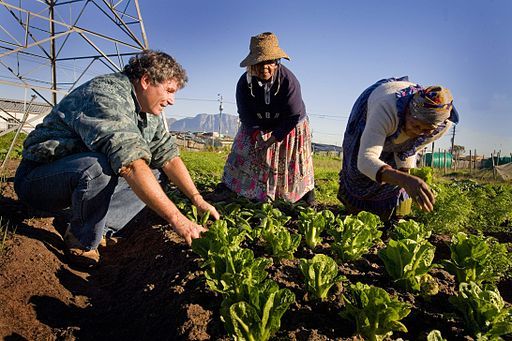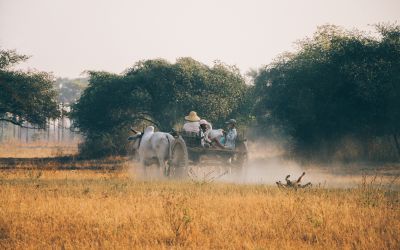African agriculture must rebrand to reel in youth
Two key aspects of the African economy must be integrated if the 'Africa Rising' narrative is to continue: Agriculture and the large proportion of young working age individuals within the population. The two, however, don't necessarily go hand in hand, with the image of farming as a career choice often seen as being juxtaposed against the highly sought after vision of modernity.

Two key aspects of the African economy must be integrated if the 'Africa Rising' narrative is to continue: Agriculture and the large proportion of young working age individuals within the population. The two, however, don't necessarily go hand in hand, with the image of farming as a career choice often seen as being juxtaposed against the highly sought after vision of modernity.
There are efforts in place to change this: The Alliance for a Green Revolution in Africa (AGRA), an initiative under the Bill & Melinda Gates Foundation, is seeking to support African Agriculture through the provision of quality seeds, improved access to finance and the revitalisation of degraded soils. This is in addition to helping to empower farmers to collectively lobby for policy change.
Progress has been made and this is clear through how topical African agriculture has become. People are gradually beginning to view farming as more than mere subsistence and there is now real belief that the sector can deliver sizeable profits. The major target, however, has to be the close to 200 million 15-24-year-olds on the continent, who are two times more likely to be out of employment than the older sector of the population.
The reality is that it's the image that needs developing. The vision of slaving day in day out to provide mere basics is not attractive to the youth, who see easier money elsewhere. In the words of the AGRA's president, Jane Karuku, there is much benefit to be drawn from "making agriculture sexy". The process behind this involves catalysing agricultural entrepreneurship, through innovative approaches - farming is not all about working the field. Innovation is also desperately needed when it comes to finance too, as the large majority of the youth don't have the land or funds to get started.
The African Union (AU) Summit held in Equatorial New Guinea from June 20-27 also focused on the sector, under the theme: “2014 Year of Agriculture and Food Security”. Responsible for a third of Africa's GDP, it was agreed across the board that a promotional focus on the sector is of crucial importance. The pathway to progression outlined by the AU Commission Chairperson, Dr. Nkosazana Dlamini Zuma, involves increased public-private investment, improved access to land and the enhanced involvement of technology.
Indeed, a report, edited by Dr Harold Elletson and released in Berlin, Germany, last week, suggests that the increased integration of ICT within agriculture is having a huge impact already. The change, which is largely occurring at the smallholder farmer level, is boosting yields, increasing choice and improving living standards. KPMG - a 'big four' professional services company - have also backed up this idea further, suggesting that universal digitisation, although directly impacting sectors such as telecommunications and broadcasting, will also have positive knock-on effect on other sectors, including agriculture.
Despite the positivity, there is still much more work to be done if Africa is to create a "trillion-dollar food market by 2030", which is the potential of the sector, according to Phil Hay, World Bank Spokesperson for the Africa Region. Despite impressive economic growth across the continent, agribusinesses have so far - ironically, if you consider the sheer scale of arable land available - been underperforming. The end goal is not only to remove poverty and hunger, which is the first stage, but also to very much position agribusiness as a key driver of industrialisation.


